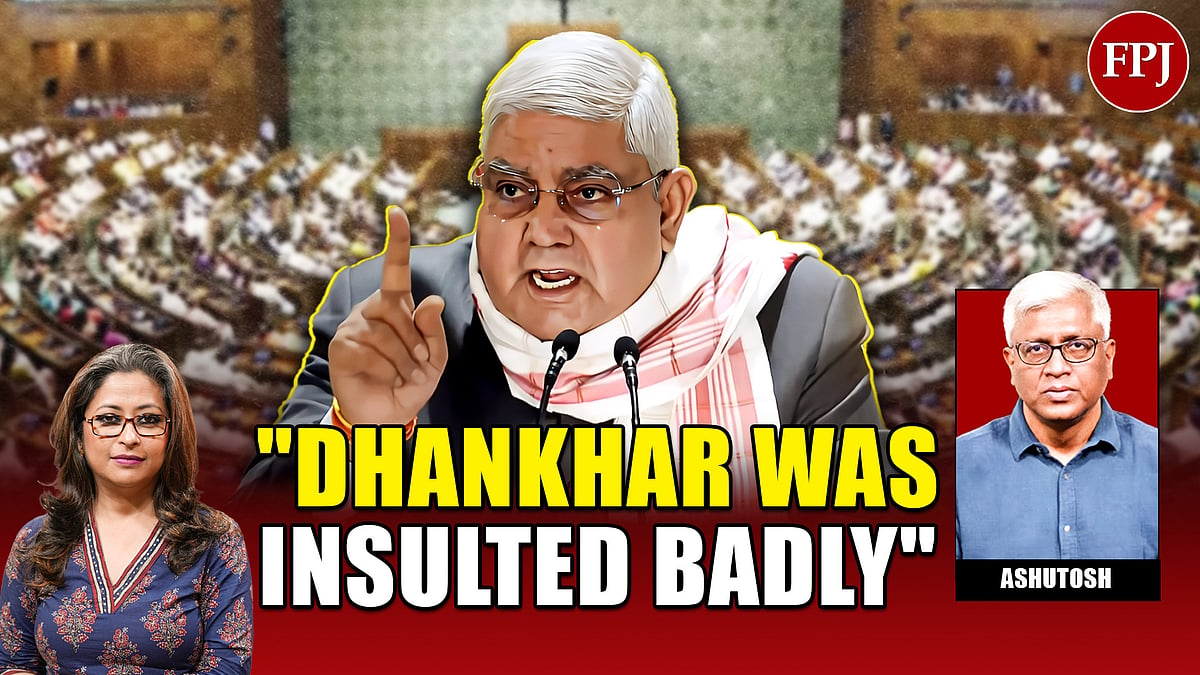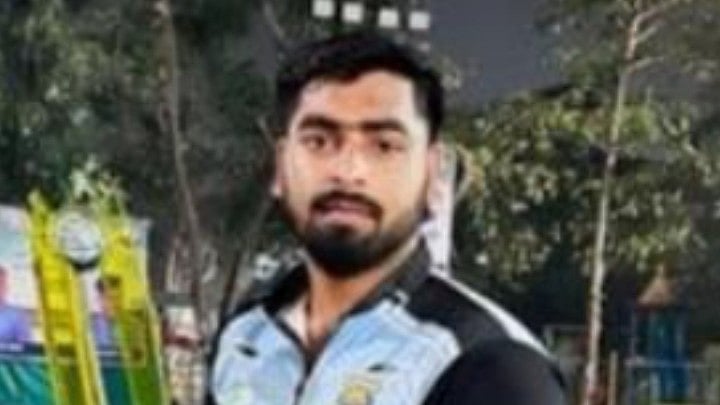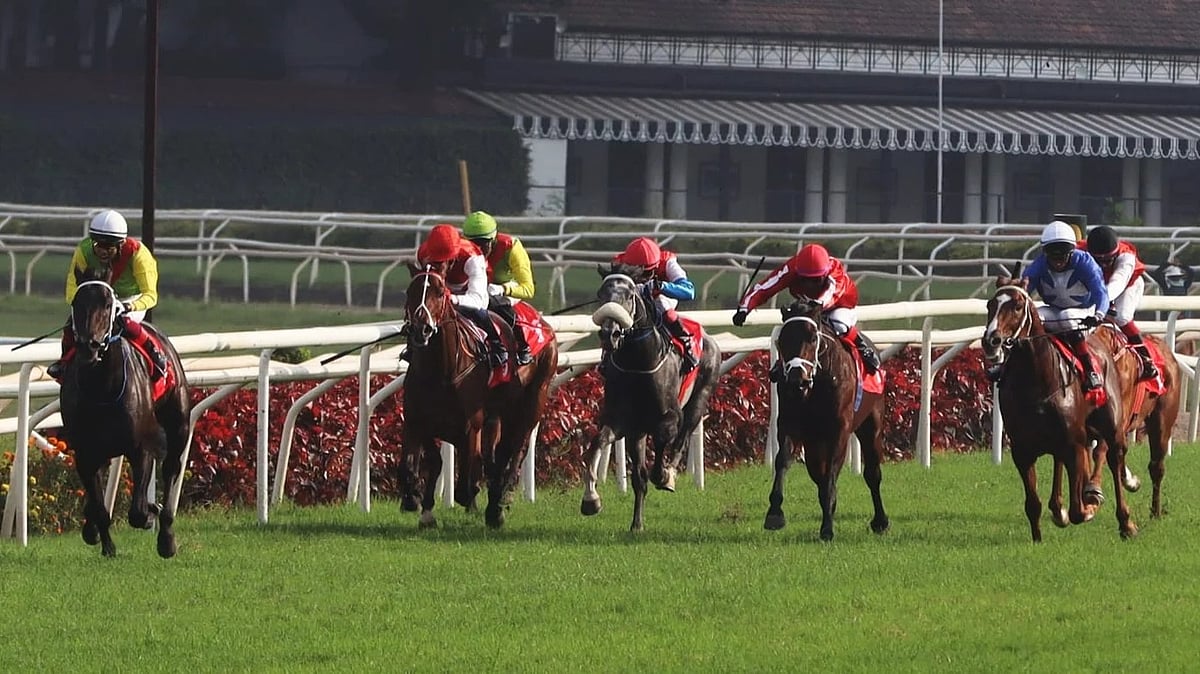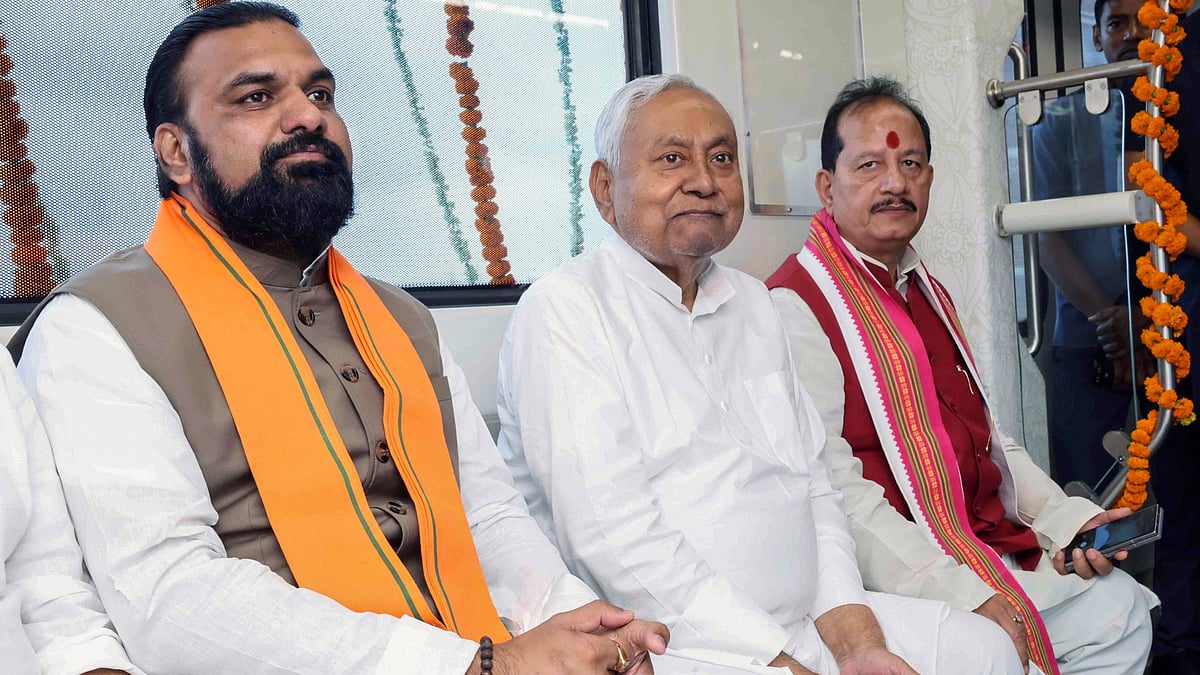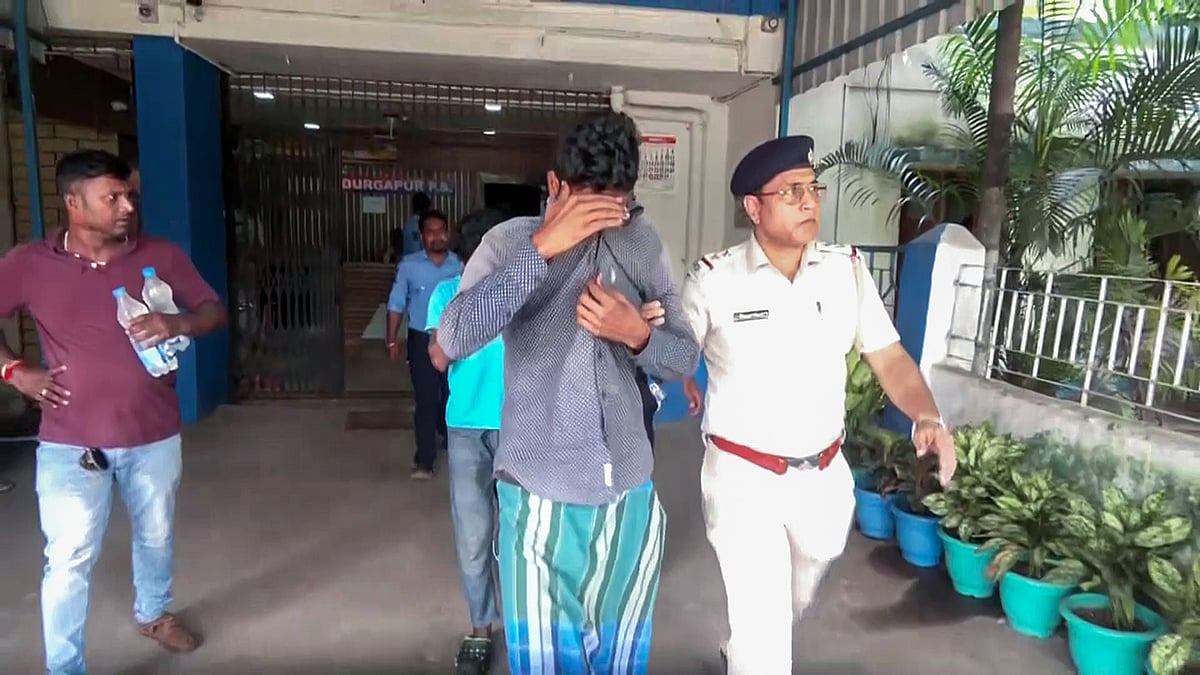Intro:
In a candid and explosive discussion with Free Press Journal Executive Editor Afrida Rahman Ali, senior journalist and Satya Hindi co-founder Ashutosh explores the dramatic resignation of Vice President Jagdeep Dhankhar. Officially attributed to health reasons, the exit has triggered a political storm, with murmurs of internal humiliation, strained party relations, and possible defiance of the ruling BJP’s line. In this Q&A, Ashutosh peels back the layers of what might really have gone on behind closed doors.
Q1: Afrida Rahman Ali:
Do you believe Vice President Jagdeep Dhankhar's resignation was truly voluntary?
Ashutosh:
No, I firmly believe it was a forced resignation. The “medical reasons” cited are merely an excuse—neither the government nor Dhankhar wants to reveal the real story. You don’t suddenly resign on health grounds after presiding over a full day of Parliament.
Q2: So if it was not health, what pushed him to resign?
Ashutosh:
From what I’ve gathered, Dhankhar felt deeply insulted and slighted. A reliable source told me he was scolded badly—so much so that he was in tears. He had reached a breaking point, possibly due to repeated humiliations by the top leadership.
Q3: But Dhankhar has always been seen as loyal to the BJP. What changed?
Ashutosh:
That’s what makes it intriguing. He was once seen as a BJP loyalist—especially in his role as West Bengal Governor, where he was aggressive against Mamata Banerjee. But over time, he began asserting himself. His style of functioning evolved, and perhaps that defiance didn’t sit well with the party leadership.
Q4: There’s speculation that his acceptance of a motion against Justice Surya Kant Verma was the trigger. Do you agree?
Ashutosh:
That may be a convenient alibi. In my view, it was only one of many incidents. As early as December 2024, Dhankhar publicly questioned the government’s handling of farmers' issues. His tone had changed—he wasn’t the obedient functionary anymore. That gradual assertion led to friction with the government.
Q5: Did the government’s reaction to his resignation suggest any tension?
Ashutosh:
Absolutely. Look at the Prime Minister’s response—just three cold lines on social media. Not a single BJP minister or leader visited him or publicly acknowledged his contributions. Compare that to how other leaders are praised. This silence speaks volumes.
Q6: Do you think the BJP couldn’t tolerate his growing independence?
Ashutosh:
Exactly. The BJP is not used to internal defiance. Even mild assertion is viewed as rebellion. Dhankhar, by standing his ground, disturbed the status quo. His defiance—like allowing Leader of Opposition Mallikarjun Kharge to speak—led to friction, even heckling by BJP MPs in the Rajya Sabha.
Q7: Do you think Dhankhar’s downfall was self-inflicted?
Ashutosh:
To a degree, yes. He bent over backwards to please the ruling establishment when he first took office. When the same people turned on him, he found himself trapped. When you give up your dignity early on, regaining it is a tough battle.
Q8: Mamata Banerjee, his one-time rival, has now come to his defense. What do you make of that?
Ashutosh:
It’s a clever political move. She’s indirectly saying his medical excuse is false and that something deeper is at play. It’s also a reminder that political civility must remain, even between rivals.
Q9: What’s the broader implication of this incident for Indian democracy?
Ashutosh:
It’s deeply troubling. The Vice President is the second-highest constitutional authority. If he’s being treated this way for not toeing the political line, then it sets a dangerous precedent. The dignity of constitutional offices must be upheld—without fear or favour.
Q10: Lastly, what do you expect from the media and public after such an exit?
Ashutosh:
Unfortunately, most media houses haven’t investigated this deeply. This is a moment for serious introspection. We need more honest journalism to uncover why such a high-ranking constitutional authority was made to resign in such a mysterious and undignified manner.
Conclusion:
Ashutosh’s insights lay bare a disturbing undercurrent in the political landscape—where allegiance appears more valued than constitutional integrity. Whether Jagdeep Dhankhar’s resignation was indeed health-related or a result of bruised egos and political fallout, one thing is clear: this exit has raised more questions than it has answered.
